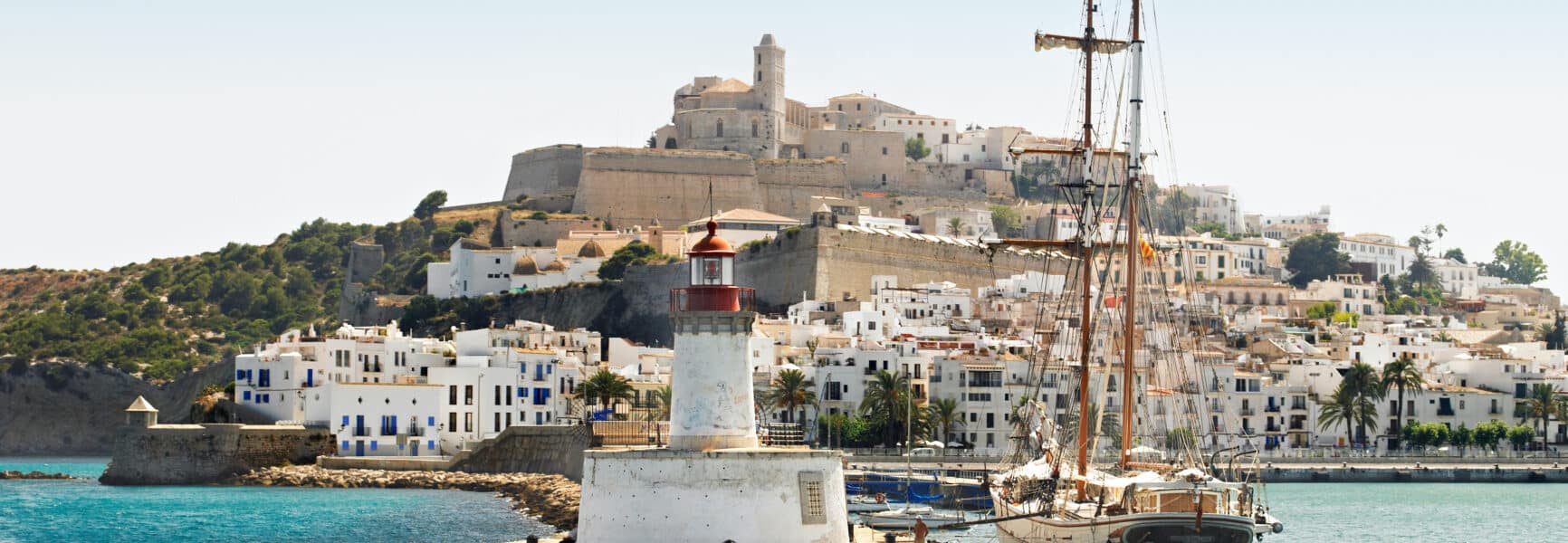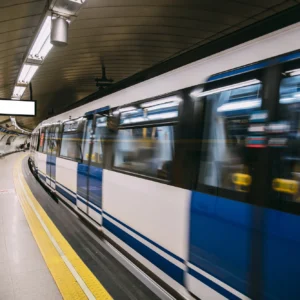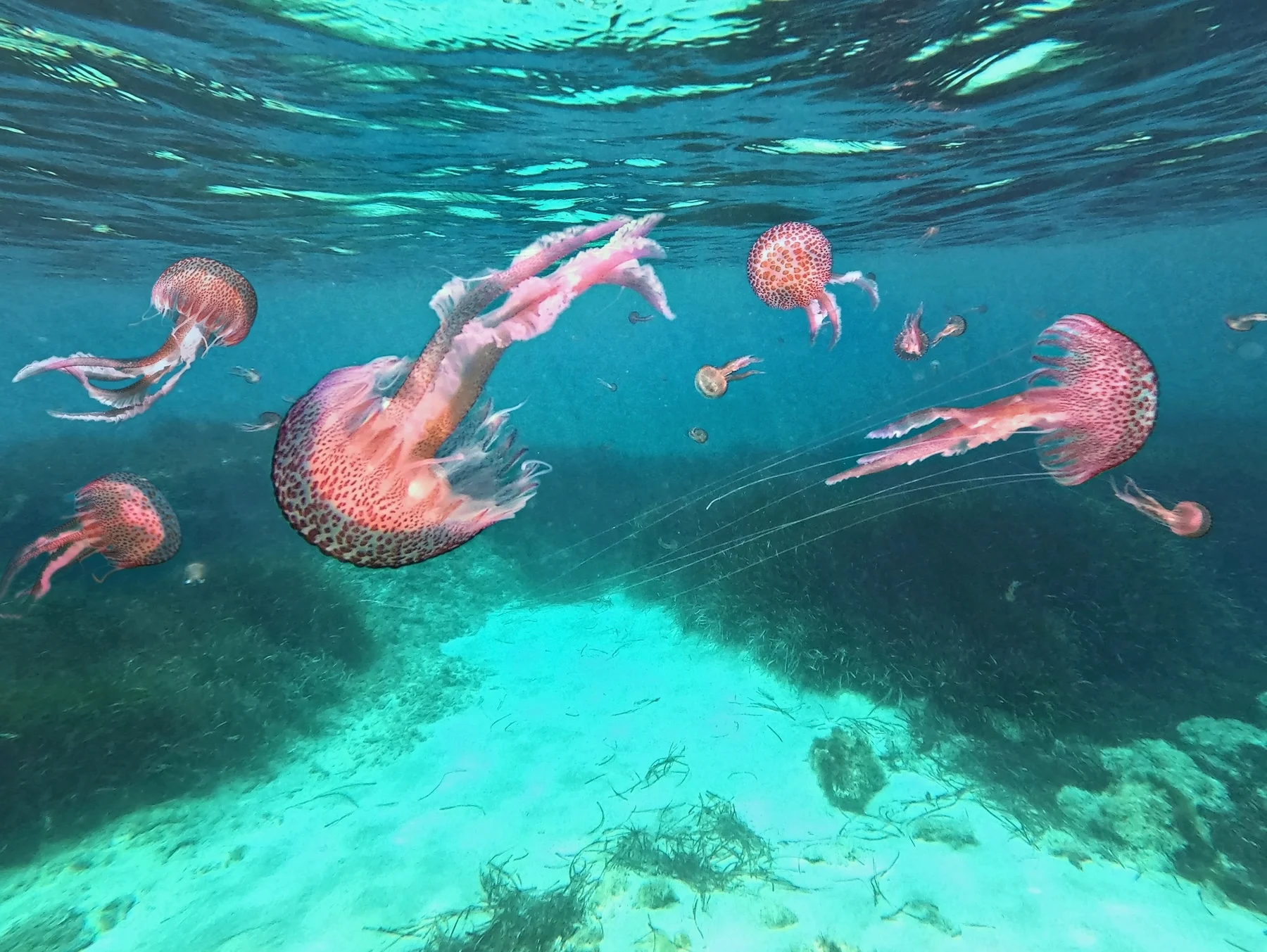Planning a trip to Ibiza in winter requires a slightly different approach than travelling at other times of the year. The island remains easy to navigate, comfortable and welcoming for international visitors, but certain practical details—such as transport schedules or opening hours—can shape your experience and are important to understand before you arrive. If you want your visit to be smooth, well-organised and free of surprises, these are the five essential things you should know before visiting Ibiza in winter.
1. Transport in winter: how to get around the island smoothly
Getting around Ibiza in winter is far easier than many travellers expect. Although the island has a reduced transport schedule compared with the summer months, it remains very well connected.
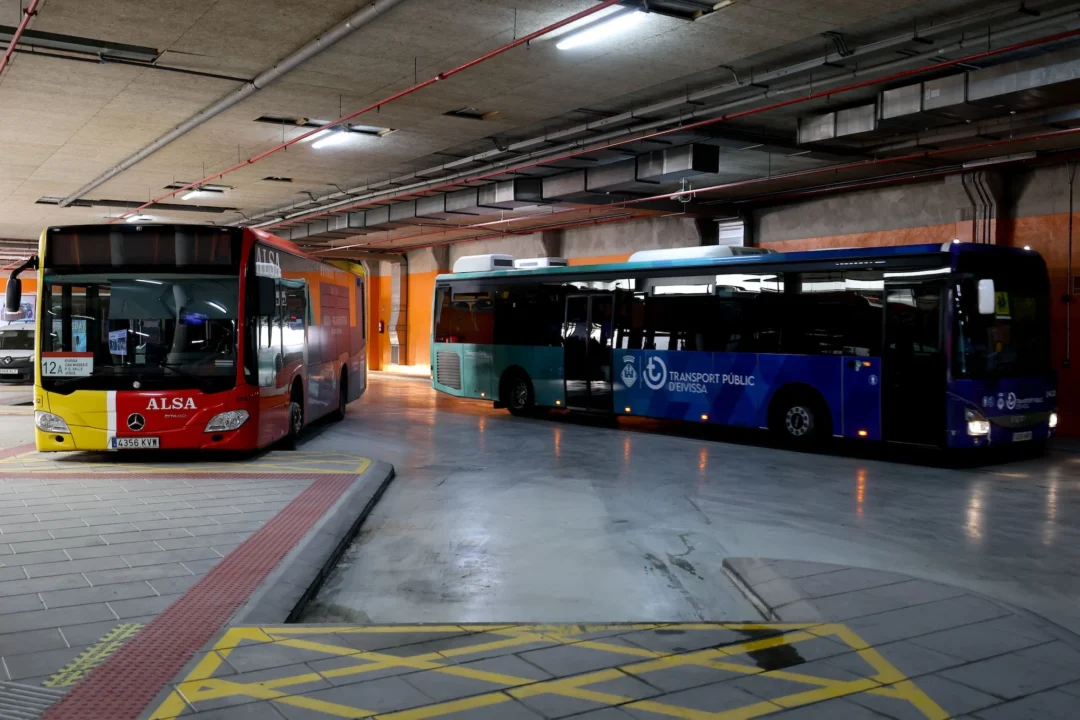
Public buses operate all year
Ibiza’s public transport network runs 12 months a year. The most important line for tourists, Line 10, connects the airport with Ibiza Town throughout the day and is the most affordable option for transfers. From the bus station in Ibiza Town, you can reach Santa Eulària, Sant Antoni, Sant Josep and other towns with frequent services.
Winter timetables are slightly reduced, especially in the evenings, so checking schedules in advance is important, as they may vary depending on the time of year. However, buses are reliable, clean and easy to use.
Taxis are available and affordable in winter
Official taxis operate all year, and they are often easier to find in winter than during the busy summer season. Because there is less traffic, travel times are shorter and the cost of a journey is lower. A taxi from the airport to Ibiza Town usually costs between €18 and €22.
You do not necessarily need a car
Many winter visitors choose not to rent a car at all. If you stay in Ibiza Town, Santa Eulària or Sant Antoni, you will have restaurants, cafés, supermarkets and coastal walks within easy walking distance. Public transport and taxis are usually enough for day-to-day movement.
Car rental is cheaper in winter
If you do want maximum freedom, renting a car becomes far more attractive in the low season. Prices drop significantly—sometimes more than half compared with August—and availability is high. This is especially useful if you want to explore remote beaches, rural viewpoints or hiking routes.
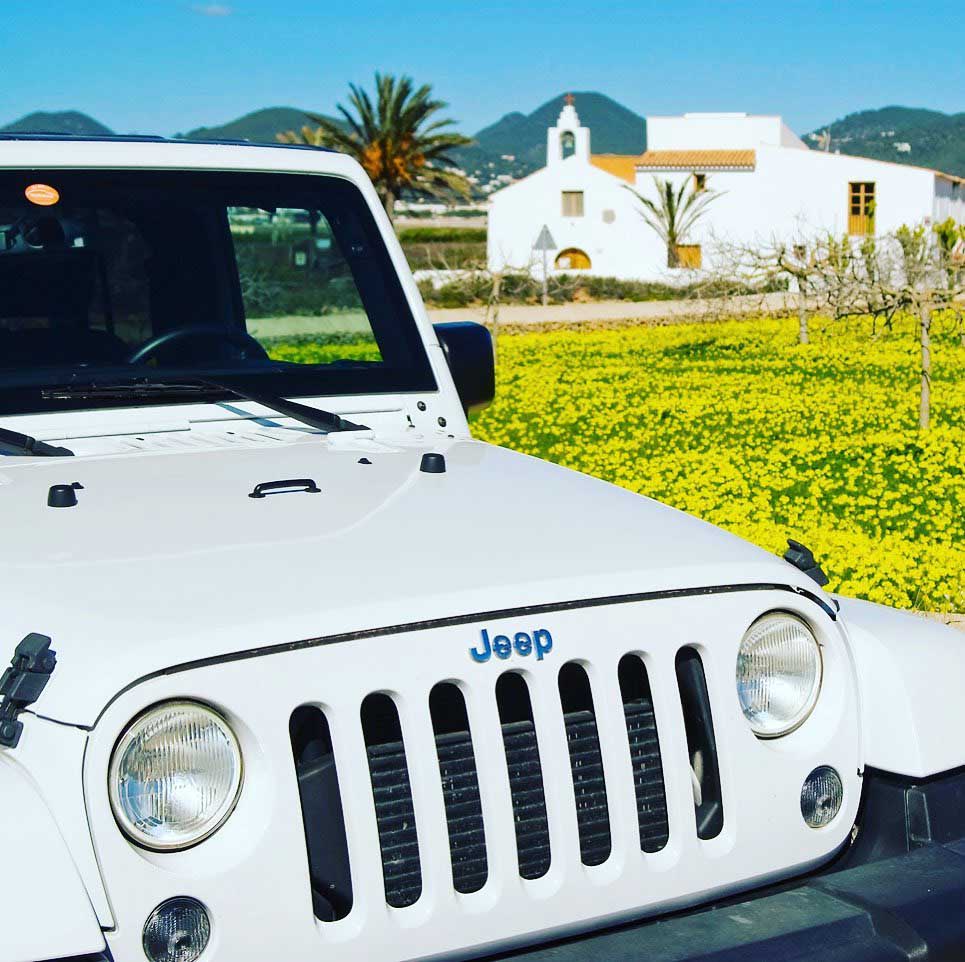
Cycling is an excellent alternative
Electric bike rentals are increasingly popular, especially in winter when temperatures are mild and roads are quieter. Distances between towns are short, and many coastal areas have bike lanes or calm routes.
2. Money, payments and everyday costs: what you should expect
Understanding how payments work in Ibiza will help you travel confidently and avoid unnecessary stress.
The local currency is the euro
All payments on the island are made in euros (€). If you are travelling from the United Kingdom or another non-euro country, you may want to bring a small amount of cash, but it is not essential.
Card payments are accepted everywhere
One of the most convenient aspects of travelling in Ibiza is that credit and debit cards are accepted in almost every establishment. Restaurants, cafés, taxis, supermarkets, beach bars and even small bakeries usually accept contactless payment.

ATMs are widely available
You will find cash machines in all major towns. Fees depend on your bank, so it is helpful to check your conditions before travelling.
Winter is the most budget-friendly time to visit
Compared with summer, prices in winter are noticeably lower. Hotel rooms are often half the price, menus of the day become excellent value, and car and bike rentals drop considerably. You will get more for your money in every aspect of your trip.
3. Language: communication is easy, even in smaller towns
Ibiza is bilingual—Spanish and Catalan are both official languages—but English is widely spoken across the island. Even in winter, when there are fewer tourists, communication remains very easy.
Staff in hotels, restaurants, shops and activity centres usually speak English, and most menus and information signs are available in English as well. In rural areas or very small villages, you may encounter locals who speak less English, but basic communication is rarely a problem.
Learning a few simple Spanish words (“hola”, “gracias”, “por favor”) is always appreciated and shows respect for local culture, but you will not face any language barrier during your visit.
4. Winter opening hours: a slower rhythm, but plenty of options
One of the biggest differences you will notice in winter is the island’s daily rhythm. You will see this especially in opening hours.
Shops follow winter schedules
Shops in the main towns usually open around 10 a.m. and close between 8 and 9 p.m. Some smaller shops, especially in residential areas, may close for a lunch break between 2 and 5 p.m.

Restaurants remain open—but check their weekly rest day
Many restaurants stay open throughout winter, especially in Ibiza Town, Santa Eulària and Sant Antoni. However, some close one or two days a week. Checking their schedules online or calling ahead will help you plan better.
You will also find restaurants offering special winter menus, which are often excellent value and feature seasonal ingredients.
Cultural attractions follow reduced hours
Museums, galleries and historical buildings such as the Cathedral of Ibiza and the archaeological site of Puig des Molins are open all year but with shorter visiting hours in winter.
Nightlife is quieter
Most beach clubs and big nightclubs close after summer, but a selection of bars, small venues and local cafés host live music, themed nights and cultural events during the colder months.
5. Electricity plugs and voltage: simple but essential information
Electrical compatibility is something many travellers forget to check, but it is important for a comfortable stay.
Ibiza uses standard European plugs
The island uses Type C and Type F plugs, the two-pin European standard. Voltage is 230V with a frequency of 50Hz.
If you are travelling from the United Kingdom or Ireland, you will need a European adapter for your devices.
Adapters are easy to find
Most hotels can lend or sell adapters, and supermarkets, souvenir shops and the airport stock them as well. However, bringing one from home ensures you can charge your phone as soon as you land.
Most modern devices are compatible
Laptops, phone chargers, cameras and tablets work without any problem. If you bring hairdryers or straighteners from home, check whether they support dual voltage.
Preparing for a winter trip to Ibiza is simple when you know what to expect. Understanding transport options, payment habits, language use, seasonal opening hours and plug requirements will help you avoid surprises and enjoy the island with complete peace of mind. With these practical details in mind, you can focus on the best part of your trip: discovering a quiet, friendly and beautifully relaxed Ibiza during its most peaceful season.
